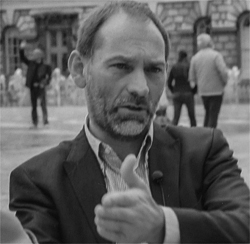Digital didn't win it, but it did shape the campaign
Thu. 21 May 2015
Labour got the most mentions, but how many of those were positive? And UKIP were ahead of the Conservatives on tweets but it didn’t turn into seats. Social media rumbled on throughout the campaign, largely an echo chamber, not a place for debate.

, Democratise
Dr Andy Williamson
Dr Andy Williamson
Founder, Democratise
Get our latest research, insights and events delivered to your inbox
Share this and support our work
There were clear traffic peaks and an expected build as polling day approached. However, the peaks were more likely to be milestone moments – leaders’ debates, dissolution of the house and manifesto launches - and it was really only the row over ‘non-dom’ status that interested social media early on, before the frenzy of the last few days. Cameron might have stood out in terms of mentions for leaders, but again it’s difficult to tell how many of these were positive or negative without deeper analysis. Harder still to work out what if any impact these were having on the hearts and minds of voters.
Social media didn’t make this election but neither was it a passive bystander. The increasingly normative nature of social tools means that it is a natural outlet for expression. One of many perhaps, but a visible and often more public one. According to Demos, the #GE2015 hashtag was mentioned over 265,000 times by 9pm on polling day. It also looks from the Demos data that the tweeters were disproportionately men (59%, to 40% women).
There were no really catastrophic social media moments, nothing more than the occasional rogue Ukipper: perhaps the image of Emily Thornberry’s ‘White van in Rochester’ was still too fresh in politicians’ minds? There were a few obvious fails though, perhaps the best being the Conservative’s pre-programmed “strong and commanding performance” message from the leaders’ Question Time programme. This was parroted out to the world almost verbatim by a sorry troupe of Tories who clearly didn’t know how social media worked. They weren’t unique, the two big parties and most candidates used social media as a battering ram of pre-prepared pronouncements, videos - which they vainly hoped would somehow go viral; they didn’t - and a range of choreographed attacks on the opposition. Though there was the odd gem, take the UKIP supporter who used Twitter to hark back to the glory days of ‘old England’ after watching Lord of the Rings. Do you want to tell him, or should I? And of course we got #Millifandom, though it wasn’t enough to change the result, and the #Cameronettes, which turned out to have been staged. More depressing and perhaps more predictable, Millicent Scott, the LibDem candidate for Hammersmith, tried to engage voters but what she found was a small group of vocal trolls who “were just interested in bullying me and it was unpleasant, unnecessary and unappreciated”.
The internet did come into play in a wider sense. Activist groups such as Bite the Ballot did a fantastic job of getting people enrolled to vote, particularly on the back of a far too recent change to individual voter registration that threatened to keep many young people off the electoral roll. Getting over 450,000 people registered online on the very last day was a great success too - in previous elections almost all of those people would have missed out. We also saw a plethora of vote matching websites spring up, some independent and some aligned to media outlets. Overall, these sites are a great way to educate people about different parties and what they stand for but caution is needed. One seemed determined to tell us to vote Green regardless of what we put in and the Daily Telegraph’s ‘Tactical voting guide’ turned out to have been programmed never to tell you to vote SNP, even when they were the only other party who could win the seat. What this highlights for me is that the use of the internet in elections is still relatively new, unregulated and too uncritically accepted. In future we should only promote and trust voter engagement tools that commit to code transparency and to being fully auditable.
So this wasn’t an internet election in the sense that the internet didn’t change the outcome. But perhaps it was a digital election since the tools behind the scenes changed the campaign. A lot of the support in the real campaigns going on at constituency level were digital-led. Variations on the NationBuilder platform used by most parties and the Conservative’s in-house Merlin system made a difference. In fact you could argue that it was Merlin ‘wot won it’ for the Conservatives, or at least the way it was used (since digital is only a tool). That might be a bit strong but it certainly had an impact. Their hyper-focus on the marginal voters in the marginal seats was a classic adoption of US campaigning techniques. Although what you can do in the UK is more limited because of privacy laws, the Tories seem to have benefitted in part by focussing on people not profiles, on individual voters not demographics.
More
Related
Blog / Controverted elections: how disputed results used to be part and parcel of English political and parliamentary life
Disputed parliamentary election results – often taking months to resolve – were a frequent feature of English political culture before the reforms of the 19th century. But how could defeated candidates protest the result of an election, and how were such disputes resolved?
Blog / The Brecon and Radnorshire recall petition process: personal reflections by Sir Paul Silk
As an elector in Brecon and Radnorshire, Hansard Society Trustee Sir Paul Silk sets out 12 shortcomings he observed in the recall petition process that led on 21 June to the triggering of a parliamentary by-election in the constituency.
Blog / The Independent Group of MPs: will they have disproportionate influence in the House of Commons?
The roles occupied by members of The Independent Group - particularly on select committees, where they retain a number of important posts and command two and a half times as many seats as the Liberal Democrats – could give them more influence than their small, non-party status might normally be expected to accord them.
Journal / Parliamentary Affairs: special issue on 'Parliamentary work, re-selection and re-election' (vol 71, issue 4, 2018)
This special issue of Parliamentary Affairs brings together comparative research across European legislatures to see how much influence MPs' day-to-day legislative and scrutiny work has on voters when they head to the polls. This issue also includes then-Commons Speaker John Bercow's 2016 Bernard Crick Lecture, 'Designing for Democracy'.
Blog / How important are competence and leadership in people's party choice?
At a time of political upheaval – with questions being asked about the leadership, policies and competence of both main UK parties – our Audit of Political Engagement reveals some interesting findings about the ways in which Conservative and Labour supporters view these factors differently and how their importance has changed over time.
Blog / 'A public phenomenon... impossible to explain': franchise reform in the long 18th century
The first women in the UK got the vote 100 years ago - but what about the preceding centuries? As the Vindication of the Rights of Woman was published in 1792, how were debates surrounding women’s suffrage being framed? And why did it take 86 years after the extension of male suffrage in 1832 for the franchise to be granted to just a small number of women?
Blog / Populist personalities? The Big Five Personality Traits and party choice in the 2015 UK general election
James Dennison examines the association between personality traits and party choice in the 2015 UK General Election.
Blog / Digital didn't win it, but it did shape the campaign
Labour got the most mentions, but how many of those were positive? And UKIP were ahead of the Conservatives on tweets but it didn’t turn into seats. Social media rumbled on throughout the campaign, largely an echo chamber, not a place for debate.
Blog / Suppose they gave a war and no-one came?
'Suppose they gave a war and no one came?' became a catchphrase of the US peace movement in the 1960s. What happened over the last week in British politics couldn’t help but remind me of it. Why?
Reports / MPs and Politics In Our Time
This 2005 report reviewed the evidence on public attitudes towards MPs and political institutions, and presented findings on MPs' own views of their relationship with voters. It set out a far-reaching agenda for change in the relationship between electorate and the elected in the interests of building public trust and encouraging democratic renewal.
Latest
Guides / Financial Scrutiny: the Budget
In order to raise income, the government needs to obtain approval from Parliament for its taxation plans. The Budget process is the means by which the House of Commons considers the government’s plans to impose 'charges on the people' and its assessment of the wider state of the economy.
Guides / Financial Scrutiny: the Estimates Cycle
In order to incur expenditure the government needs to obtain approval from Parliament for its departmental spending plans. The annual Estimates cycle is the means by which the House of Commons controls the government’s plans for the spending of money raised through taxation.
Data / Coronavirus Statutory Instruments Dashboard
The national effort to tackle the Coronavirus health emergency has resulted in UK ministers being granted some of the broadest legislative powers ever seen in peacetime. This Dashboard highlights key facts and figures about the Statutory Instruments (SIs) being produced using these powers in the Coronavirus Act 2020 and other Acts of Parliament.
Briefings / The Economic Crime (Transparency and Enforcement) Bill: four delegated powers that should be amended to improve future accountability to Parliament
The Bill seeks to crack down on ‘dirty money’ and corrupt elites in the UK and is being expedited through Parliament following Russia’s invasion of Ukraine. This briefing identifies four delegated powers in the Bill that should be amended to ensure future accountability to Parliament.
Articles / Brexit and Beyond: Delegated Legislation
The end of the transition period is likely to expose even more fully the scope of the policy-making that the government can carry out via Statutory Instruments, as it uses its new powers to develop post-Brexit law. However, there are few signs yet of a wish to reform delegated legislation scrutiny, on the part of government or the necessary coalition of MPs.